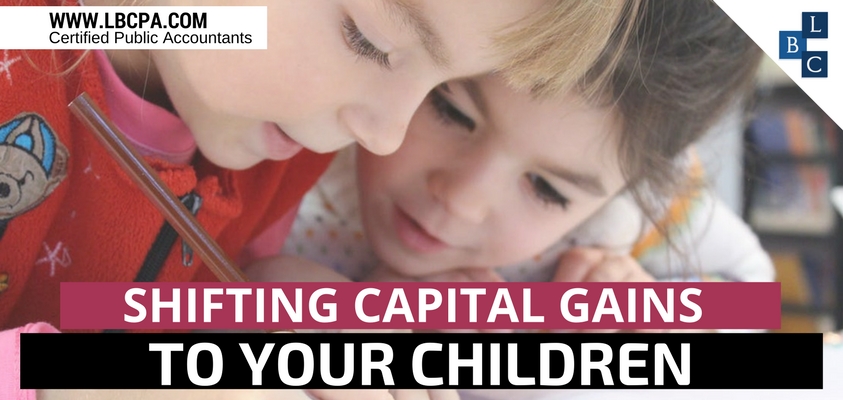LBCPA News 
Click here to go back
SHIFTING CAPITAL GAINS TO YOUR CHILDREN

If you’re an investor looking to save tax dollars, your kids might be able to help you out. Giving appreciated stock or other investments to your children can minimize the impact of capital gains taxes.
For this strategy to work best, however, your child must not be subject to the “kiddie tax.” This tax applies your marginal rate to unearned income in excess of a specified threshold ($2,100 in 2017) received by your child who at the end of the tax year was either: 1) under 18, 2) 18 (but not older) and whose earned income didn’t exceed one-half of his or her own support for the year (excluding scholarships if a full-time student), or 3) a full-time student age 19 to 23 who had earned income that didn’t exceed half of his or her own support (excluding scholarships).
Here’s how it works: Say Bill, who’s in the top tax bracket, wants to help his daughter, Molly, buy a new car. Molly is 22 years old, just out of college, and currently looking for a job — and, for purposes of the example, won’t be considered a dependent for 2017.
Even if she finds a job soon, she’ll likely be in the 10% or 15% tax bracket this year. To finance the car, Bill plans to sell $20,000 of stock that he originally purchased for $2,000. If he sells the stock, he’ll have to pay $3,600 in capital gains tax (20% of $18,000), plus the 3.8% net investment income tax, leaving $15,716 for Molly. But if Bill gives the stock to Molly, she can sell it tax-free and use the entire $20,000 to buy a car. (The capital gains rate for the two lowest tax brackets is generally 0%.)
If you have any questions regarding accounting, domestic taxation, international taxation, IRS representation, U.S. tax implications of Real Estate transactions or financial statements, please give us a call at 305-274-5811.
Source: Thomson Reuters






